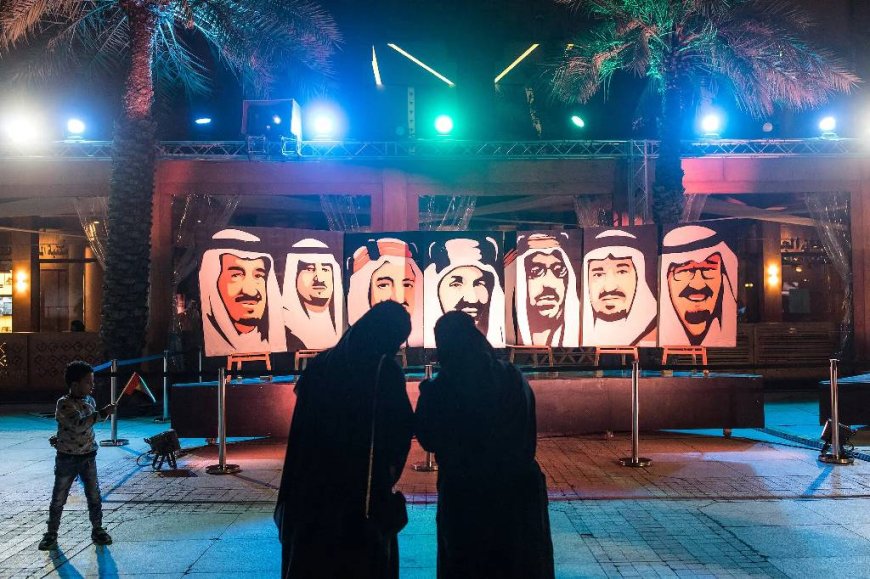An Illusion of Freedom: Women's Rights in Saudi Arabia under Bin Salman's Rule
In the second decade of the new millennium, Saudi Arabia finds itself on the precipice of a transformative era in its sociopolitical landscape, catalyzed by the ascension of King Salman. Since assuming power in early 2015, Salman has endeavored to instigate changes within the macrocosm of Saudi Arabia. However, it is the advent of Crown Prince Mohammed bin Salman (commonly known by his initials, MBS) that has propelled these changes to new heights, ushering in a novel approach to Saudi policies, particularly in social domains.

MBS’ Pursuit of Reform
Since assuming power, MBS has become the de facto ruler of the oil-rich kingdom and has tirelessly endeavored to present himself as a harbinger of reform, signaling a departure from Saudi Arabia's traditional modus operandi. He seeks to present himself as a reformer by cautiously enabling people to express themselves freely and fostering a society characterized by dynamism and proactive engagement. By embracing a neoliberal ideology, Bin Salman endeavors to cultivate an environment reminiscent of modern European societies, exemplifying his commitment to progress through ambitious, large-scale projects.
Vision 2030 and the Evolution of Saudi Society
Bin Salman's tenure has witnessed concerted efforts to effect radical changes and redefine Saudi Arabia's religious identity. By distancing himself from the nation's ancient customs and traditions, he espouses a Western-centric agenda, ostensibly aimed at de-Islamizing the country. Central to this ambition is the "Saudi Arabia 2030" vision, which outlines multifaceted developmental objectives. Regrettably, in the socio-cultural dimension, this vision has inadvertently neglected the religious and traditional foundations as well as the conservative fabric of Saudi society.
Notably, Vision 2030 outlines the obligation of clerics to address issues such as women's freedom, social tolerance in interactions with non-Muslims, secularism, and a liberal stance towards music, celebrations, and cinema. However, these provisions grant Saudi women the ability to partake in immodest revelries. According to many observers, MBS’ ultimate objective appears to be a society unfettered in indulgence in alcoholic beverages and unrestricted mixed-gender parties, with no regard for Islamic norms and traditions.
Escalating Social Disarray and the Plight of Saudi Women
One of the propositions put forth in Saudi Arabia's Vision 2030, purportedly aimed at enhancing women's freedom, is the organization of mixed-gender parties. In recent years, the Saudi government, under MBS’ so-called reformist agenda, has facilitated such immoral gatherings. While it may appear that this grants newfound liberties to Saudi women, the unbridled atmosphere within these festivities has led to a surge in incidents of sexual harassment. Regrettably, Saudi authorities have thus far failed to take effective measures to curb these increasing abuses.
Despite Cultural Reforms, Saudi Women's Rights Remain Violated!
In spite of MBS’ endeavors to improve the Saudi government's public image, Saudi women continue to endure widespread violations of their rights. Saudi Arabia boasts the most stringent restrictions on women among nations worldwide, with various forms of violence against women permeating its society. Complaints received by the Human Rights Commission and the National Association for Human Rights attest to the rampant abuse by men across multiple domains. It appears that MBS’ efforts remain largely confined to superficial propaganda, neglecting to address the fundamental needs of Saudi women. Consequently, these reforms serve merely as vehicles for the proliferation of banal modernity and entertainment, lacking the political reforms necessary for the establishment of a democratic nation that values and upholds the rights of its populace.
As Saudi Arabia embarks on this transformative journey, it is vital that the pursuit of progress encompasses a comprehensive and holistic approach, one that genuinely addresses societal needs and ensures the empowerment of all citizens. Superficial reforms, in the absence of substantive change, risk perpetuating an illusion of social progress while impeding the advancement of a truly democratic and egalitarian society. The time has come for Saudi Arabia to transcend rhetoric and embrace a real commitment to fundamental rights and freedoms for all.













































